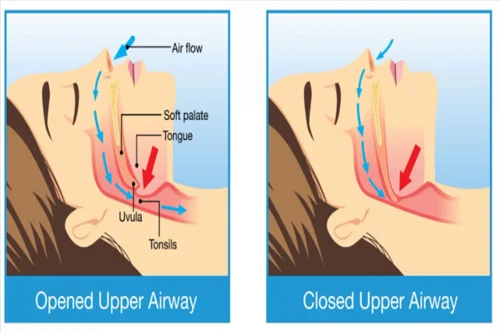Sleep Apnoea and Snoring
Sleep Apnoea and Snoring

Snoring is a common condition that occurs when airflow through the mouth and nose is partially blocked during sleep, causing the soft tissues of the throat to vibrate. While occasional snoring is usually harmless, loud or frequent snoring may be a sign of obstructive sleep apnoea (OSA) — a more serious condition where breathing repeatedly stops and starts during sleep.
Common Symptoms of Sleep Apnoea and Snoring
- Loud and frequent snoring, often disturbing others
- Breathing pauses during sleep, noticed by a partner
- Gasping, choking, or snorting sounds at night
- Waking up with a dry mouth or sore throat
- Excessive daytime sleepiness or fatigue
- Restless or disturbed sleep
- Difficulty concentrating or memory problems
Treatment for Sleep Apnoea and Snoring
- Lifestyle changes : Losing weight, avoiding alcohol near bedtime, sleeping on your side, and treating nasal allergies can help reduce snoring and mild sleep apnoea.
- CPAP therapy (Continuous Positive Airway Pressure) : A machine that keeps the airway open by delivering air through a mask during sleep.
- Surgical options: In cases where anatomical issues contribute (like enlarged tonsils, nasal blockage, or a deviated septum), surgery may be recommended.
- Oral appliances : Custom-made devices that adjust the position of the jaw and tongue to keep the airway open.
If snoring or poor sleep is affecting your health or quality of life, don’t ignore it. Our ENT specialists can help diagnose the cause and offer solutions tailored to your needs. Book a consultation today for better sleep and better health.
